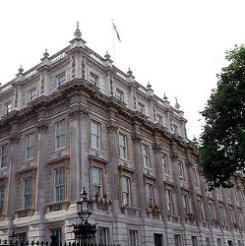Last week the government announced a £20m pot of funding for charities. This sounds like good news, says David Ainsworth, so why are so many in the sector unhappy about the new Local Sustainability Fund?
Last week, the government announced the long-awaited Local Sustainability Fund - £20m of funding for small and medium-sized charities.
On the face of it this ought to be good news. But the way this fund has been handled tells you all you need to know about central government’s attitude to the sector.
First, some background. In March last year the then-minster for civil society Nick Hurd announced plans for a new £40m fund for charities.
It was a rather off-the-cuff announcement. The fund at that point had no name, the amount of money was not actually confirmed, and the objects had still to be established. But the idea was good: medium-sized charities, particularly service delivery organisations, were on their uppers after years of austerity, and could probably do with a hand. Why not set up a fund to help them out? It wasn’t a huge amount of money, but it was well targeted and indicated at least some sensitivity to the worst-hit parts of the sector.
The Office for Civil Society launched a formal consultation on what it should look like, which many charities responded to thoughtfully.
Since then, however, little has gone right.
The government’s consultation document promised that: “We aim to work openly on developing the fund”, however it is difficult to conclude that they succeeded in this aim.
First there is the fact that the summary of consultation responses has never even been published, so it is impossible to know if government listened to the advice it had solicited.
Second, the fund itself continued fail to make an appearance for more than a year.
Now, 15 months later, the fund has finally arrived, but it is half the size that was originally promised, and probably too late for many of the organisations it was designed to sustain.
Nor is the application process exactly well-designed for the sector. There was no advance notice that the fund was being launched, so charities have not been able to prepare bids; there is less than a month to actually apply, which is nowhere near long enough; and there are complaints about the complexity of the application process, compared to the length of the window.
To assess whether you’re able to apply, you need to assemble the following: your most recent audited accounts, your most recent management accounts, your staff structure, your next year’s budget, your breakdown of fundraising income, your business plan and your mission statement. No small amount of paperwork, in short. But in common with too many government funds, there is only a one-month window.
The rhetoric accompanying the fund is also likely to gall some sections of the charity sector, because it suggests that the lack of money will be made up for by increased support from businesses.
“The structure of the LSF reflects my philosophy that it’s not just about the money,” the current minister, Rob Wilson, said last week.
While volunteering and advice may be welcome, there are many in the sector who are tired of being told that they need to learn from commercial organisations, and to hear this rhetoric from the minister may prove unwelcome. It is obvious that the current minister’s true passion is for small business, but that does not mean he should try to turn charities into them.
There are likely to be reasons for the way the LSF has arrived. Not least is that it was Hurd’s pet project, and without him driving it, much of the vision behind it faded away. Those inheriting his work saw it as a dubious obligation, and were unwilling to expend the same effort and capital bringing it about.
Nonetheless, the treatment of the fund suggests that the sector is not the highest priority for government at the moment.










